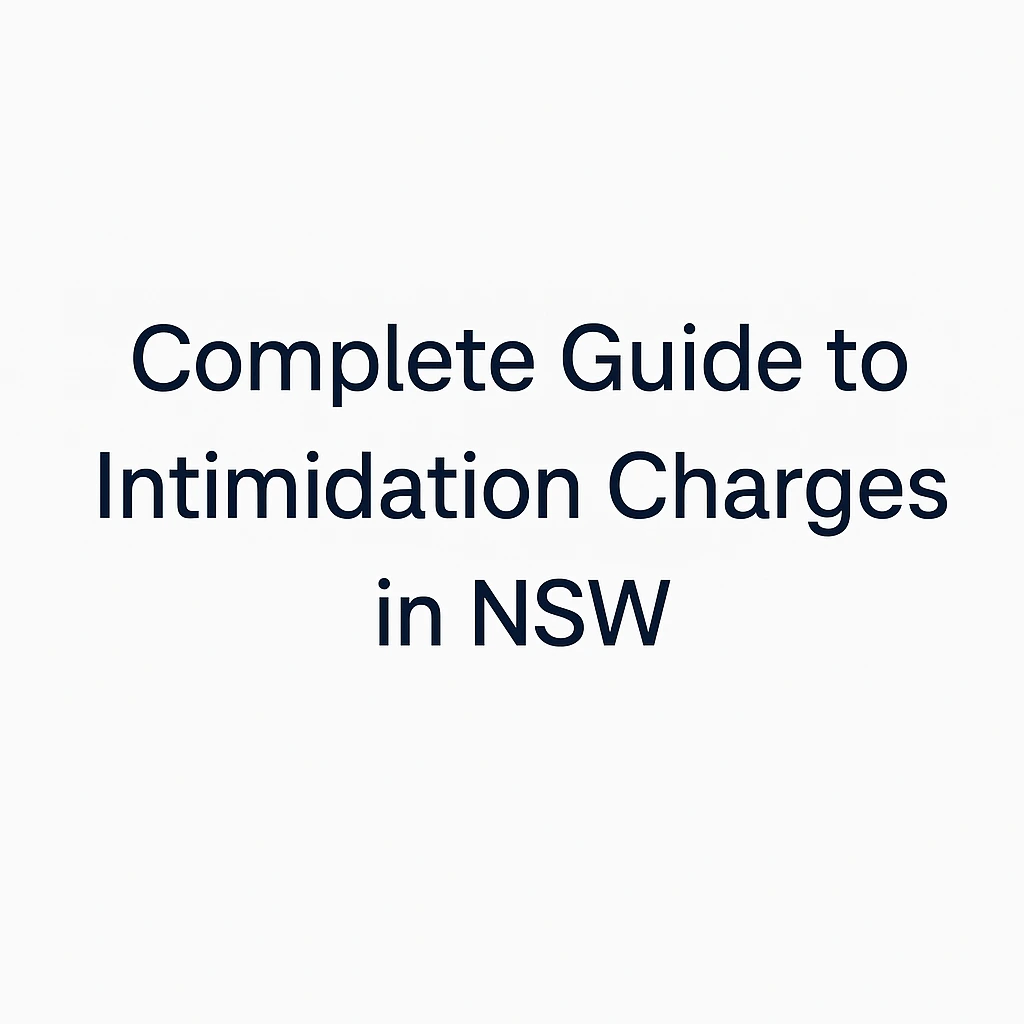Not all Apprehended Violence Orders (AVOs) arise within domestic relationships. Some may arise between neighbours, in public spaces, or shared environments, where professional and personal boundaries may blur. If you are the subject of an AVO—whether initiated by a colleague, acquaintance, or another community member or the NSW Police—it is vital to understand the legal process and obtain proper criminal law representation from the outset.
What Is an AVO, and When Does It Apply?
An AVO is a civil order made by a court to protect a person who fears violence, harassment, or intimidation from another individual. In New South Wales (NSW), AVOs are categorised into:
- Apprehended Domestic Violence Orders (ADVOs) – issued in the context of family or intimate relationships.
- Apprehended Personal Violence Orders (APVOs) – issued when the individuals involved are not in a domestic relationship. This may include co-workers, neighbours, or members of the same community.
AVOs are not criminal convictions. However, breaching an AVO is a criminal offence and can lead to arrest, court proceedings, and severe penalties, including imprisonment. That is why criminal law representation is essential.
Workplace Scenarios and Misconceptions
There is a growing awareness of how AVOs can affect workplaces—especially when co-workers are involved in a dispute. However, it is crucial to clarify the limits of legal advice in this space:
- The Fair Work Act 2009 (Cth) protects employees against workplace bullying, harassment, and adverse action. It does not, however, override or dictate AVO proceedings, which are governed by state law.
- If an AVO is issued between colleagues, it may result in immediate suspension or termination due to business risk and duty-of-care obligations. In reality, it is rare for both parties to continue working in the same organisation following an AVO.
- Criminal lawyers can provide legal guidance on the AVO and any related criminal proceedings—not employment consequences under the Fair Work Act. For workplace-specific issues, a separate employment law specialist should be consulted.
How AVOs Are Issued and Defended
AVOs may be sought by Police (following a reported incident) or through a private application made directly by the person seeking protection to the NSW Local Court. In either case, the legal process involves:
- Filing an application for an apprehended violence order (domestic or personal)
- Acceptance of the application by the Local Court and service of the application on the defendant
- First Court appearance after service of the application on the defendant
- Interim orders (temporary conditions) which may be made by the Court in private applications or are automatically made in Police initiated applications
- Filling and service of evidence in support and against the application
- Court hearing where evidence is presented, and the court decides whether to make a final order
At AMA Legal, our focus is on helping you defend AVO applications and provide criminal law representation at Court. A strong legal representation involves:
- Analysing the credibility, reliability and consistency of the applicant’s evidence
- Examining contextual details underlying the application— whether the application is bona fide, exaggerated, or based on a misunderstanding?
- Gathering witness testimony, communications, CCTV, or other relevant exculpatory evidence
- Ensuring procedural fairness as the matter progresses through the Court
- Advocating on your interest in Court
What Are the Conditions of an AVO?
An AVO may impose conditions such as:
- Prohibiting contact with the protected person (including phone, social media, and third-party communication)
- Restricting access to certain locations (e.g. workplaces, homes, schools)
- Preventing behaviour that could be considered threatening or harassing
Even if the AVO is issued in a non-domestic setting, breaching its terms is a criminal offence, punishable by up to two years’ imprisonment and a fine of over $5,500 under the Crimes (Domestic and Personal Violence) Act 2007 (NSW).
Why Criminal Law Representation Is Warranted
It is a common misconception that because an AVO does not involve a criminal offence or conviction, it is not a serious order or that the AVO will be dismissed because it’s unfair or exaggerated. In reality, courts take a cautious approach by continuing an AVO on an interim basis and determining the merits of the AVO applications at the final hearing. Without proper legal representation, you risk:
- Not knowing the conditions of the AVOs and implications of their breaches
- Not being able to present relevant evidence in an admissible form for the Court’s consideration
- Not knowing how such applications progress at Court until the final hearing
Legal representation ensures that your side of the story is put before the Court for consideration and that your legal rights are protected at every step.
Secure Your Defence with AMA Legal
If you have been served with an AVO, the consequences can be serious and far-reaching, whether in a personal or domestic setting. Don’t navigate this process alone. AMA Legal offers experienced criminal law representation to safeguard your rights.
Contact us and schedule a confidential consultation with AMA Legal today.





